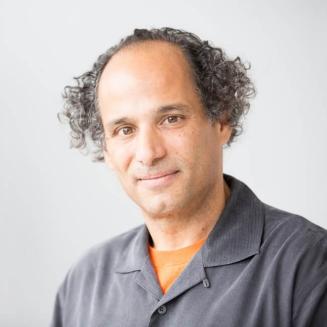OUR PEOPLE

Daniel Dohan, PhD
Professor
School of Medicine
490 Illinois Street, #72L
San Francisco, CA 94158
Image

Education and Training
Harvard College, AB - 1987 Sociology
University of California,Berkeley, PhD - 1999 Sociology
Robert Wood Johnson Foundation Scholars in Health Policy Research,UC Berkeley 2001 Health Policy
NIH/NIAAA,UC Berkeley 2003 Health Policy
University of California,San Francisco 2017 Diversity, Equity, and Inclusion Champion Training
Overview
Dan Dohan is Professor of Health Policy, Surgery, and Humanities and Social Sciences at the Philip R. Lee Institute for Health Policy Studies. He received his PhD in sociology from UC Berkeley. His publications address medical sociology, health policy, culture and inequality, and ethnographic research methods. He has written one book, The Price of Poverty: Money, Work, and Culture in the Mexican-American Barrio (UC Press 2003).
Dan directs the Medical Cultures Lab (https://www.cultureofmedicine.org). MCL seeks to understand medical culture and advance health equity. The Lab includes approximately 30 core members including faculty, post-doctoral scholars, non-faculty academics, and research staff and more than 50 affiliated members. MCL maintains a consulting and recharge mechanism to support qualitative and ethnographic research. Investigators can visit our website to learn more about how we support qualitative project design, data collection, data management, and data analysis. We particularly encourage inquiries from investigators whose work or career includes a health equity focus. MCL's work is supported by a mid-career award to Dan from the NIA.
As an individual investigator, Dan leads/co-leads three studies. He is PI of an NIA-funded comparative ethnographic study of experiences of aging and cognitive decline in diverse communities. With Emily Finlayson, he is co-PI of an NCI study of surgery in older adults. They are examining ways to make frailty assessment a routine part of the surgical visit. Finally, with Winston Chiong, he is co-PI of an NIH study about new technologies for treating neurological conditions, including treatments that involve implanting computers in the brain. Their study asks, what are the social implications of these new approaches to epilepsy and other conditions?
Dan directs the Medical Cultures Lab (https://www.cultureofmedicine.org). MCL seeks to understand medical culture and advance health equity. The Lab includes approximately 30 core members including faculty, post-doctoral scholars, non-faculty academics, and research staff and more than 50 affiliated members. MCL maintains a consulting and recharge mechanism to support qualitative and ethnographic research. Investigators can visit our website to learn more about how we support qualitative project design, data collection, data management, and data analysis. We particularly encourage inquiries from investigators whose work or career includes a health equity focus. MCL's work is supported by a mid-career award to Dan from the NIA.
As an individual investigator, Dan leads/co-leads three studies. He is PI of an NIA-funded comparative ethnographic study of experiences of aging and cognitive decline in diverse communities. With Emily Finlayson, he is co-PI of an NCI study of surgery in older adults. They are examining ways to make frailty assessment a routine part of the surgical visit. Finally, with Winston Chiong, he is co-PI of an NIH study about new technologies for treating neurological conditions, including treatments that involve implanting computers in the brain. Their study asks, what are the social implications of these new approaches to epilepsy and other conditions?

